Enterprise resource planning (ERP) software integrates core business operations, including finance, accounting, inventory management, supply chain, HR, project management, and customer relationship management.
Organizations using ERP software solutions get complete visibility into the business operations from one place, which increases team efficiency while streamlining decision-making and collaboration across departments.
There are 5 benefits of using ERP software:
- A single source of truth (SSOT) for all teams
- Better visibility into business processes
- Automated and efficient workflows across departments
- Improved inventory and procurement management
- Transparent collaboration and coordination
Geekflare team has researched and listed the best ERP system and vendor based on features, integration, deployment method, and pricing.
- Sage X3 – Best for Medium Size Business
- Microsoft Dynamics 365 – Best for Large Enterprises with Complex Needs
- SAP Business One – Best for Established Midsize Enterprises
- Acumatica Cloud ERP – Best for Comprehensive ERP Suite
- SYSPRO – Best for Manufacturing Process Optimization
- Odoo – Best for Flexible and Affordable ERP
- ERPNext – Best for Small Businesses
- Workday – Best for HCM and Financial Management
- Oracle NetSuite ERP – Best for Cloud-Based ERP
- Katana – Best for eCommerce and Inventory Management
- metasfresh – Best for Open Source
- Deltak Costpoint – Best for Small Government Contractors
- Dolibarr – Best for Customization
- QT9 – Best for Quality Management
- Epicor – Best for Large Businesses
- Show less
You can trust Geekflare
Imagine the satisfaction of finding just what you needed. We understand that feeling, too, so we go to great lengths to evaluate freemium, subscribe to the premium plan if required, have a cup of coffee, and test the products to provide unbiased reviews! While we may earn affiliate commissions, our primary focus remains steadfast: delivering unbiased editorial insights, and in-depth reviews. See how we test.
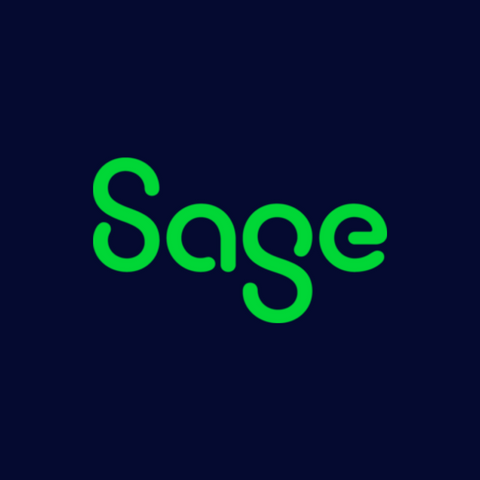
Sage X3
Best for Medium Size Business
- Industry FocusGeneral
- DeploymentHybrid
- Ideal for Company SizeMid-Size Businesses
About Sage X3
Sage X3 is a scalable ERP system that lets organizations control all aspects of their business, including operations, finances, and supply chain, from a single platform. Manufacturing, business services, distribution, food and beverage, chemicals, discrete manufacturing, and other industries utilize Sage X3 for flexibility and business insights, making it the top choice of ERP platform.
UK-based software company Sage was established in 1981.
Benefits
Sage X3 is ideal for smooth collaboration, as it lets organizations manage workflows and transactions across multiple companies and websites. It also offers customizable role-based landing pages that each user can access to get personalized data and reports.
Sage X3 users also get an enhanced mobile experience with a personalized layout and functionalities. It also generates financial reports for advanced data analytics that help companies to make data-based decisions.
Sage X3 Features
Multi-bill of materials (BOM) management.
Change management in products and BOM.
Major and minor version number management.
Clock in/out for attendance and break.
Workbench for shop floor tracking.
Batch number, serial number, and expiry date management.
Quality control record creation and procedure with analysis request.
Manage stock status based on acceptance, rejection, and inspection.
Breakdown structure for work, product, and project cost.
Multi-level description of tasks for manufacturing and operational process.
Operation assignment to the employees.
Time entries to track time spent on tasks, operations, and budget levels.
Sage X3 Pros/Cons
Cloud and on-premise deployment models.
Marketplace with connection apps for extended capabilities.
Multi-currency and multi-legislation support for multinational companies.
Online courses and on-site training with Sage partners.
Steep learning curve.
Basic data visualization in reports.
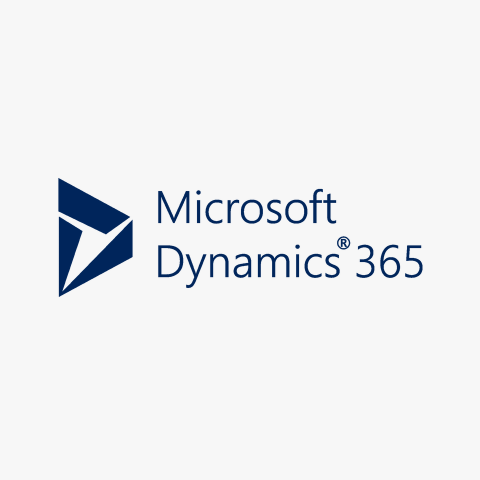
Microsoft Dynamics 365
Best for Large Enterprises with Complex Needs
- Industry FocusGeneral
- DeploymentCloud
- Ideal for Company SizeLarge Businesses
About Microsoft Dynamics 365
Microsoft Dynamics 365 is the ERP system by Microsoft. It offers a range of tools to manage the performance of sales, marketing, finance, customer service, field service, and supply chain teams. That’s why Microsoft Dynamics 365 is the top ERP software for enterprises with complex operational needs.
Microsoft Dynamics 365 was released in 2016 and was named the Cloud ERP leader for Product-Centric Enterprises in the 2023 Gartner Magic Quadrant.
Companies using Microsoft Dynamics 365 can access organizational data from hundreds of sources to get a complete picture of the business. Select license users of Dynamics 365 can get the built-in AI experience of Microsoft Copilot at no extra cost for more efficient work.
Dynamics 365 supports collaboration with Microsoft Teams and Microsoft 365 to share insights and formation for enhanced productivity. It also integrates with the low-code tools of Microsoft Power Platform for quick process modification for changing needs.
Microsoft Dynamics 365 Features
Connected financial planning, budgeting, and forecasting across the organization.
Cash management, tax management, and financial reporting with self-serve analytics.
Time and expense management for reimbursement and client billing.
Flexible project management with Kanban board and Gantt chart.
Consolidated view of sales and financial data with actionable insights.
People-centric HR with self-service tools for regulatory compliance.
AI-powered predictions and historical data for demand forecasting and planning.
Unified ecommerce support for omnichannel purchase.
Order lifecycle management through customizable integrated dashboards.
Automation for optimized financial and accounting operations.
Supply risk assessment using historical data and product metrics.
Microsoft Dynamics 365 Pros/Cons
30-day free trial to get hands-on experience.
Customer support via chat, phone calls, and requested assistance.
99% or above uptime SLA.
Smooth integration with Microsoft 365 and LinkedIn.
No flat-pricing rate.
24/7 support is not available.
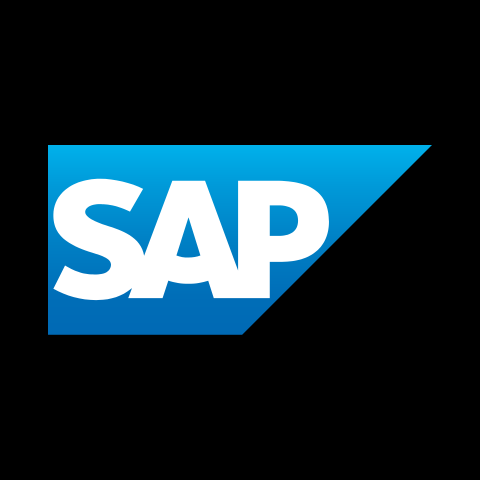
SAP Business One
Best for Established Midsize Enterprises
- Industry FocusGeneral
- DeploymentCloud
- Ideal for Company SizeMid-Size Businesses
About SAP Business One
SAP Business One is a dedicated ERP service offered by SAP for mid-sized businesses. Unlike SAP S/4HANA Cloud or SAP ERP, it is a specialized solution for managing accounting, inventory, sales, CRM, reporting, and analysis for an SMB. Hence, SAP Business One is the best ERP software for any midsize enterprise.
SAP started its journey in 1972 and currently has more than 280 million users on their cloud platform.
Benefits
SAP Business One is a highly flexible ERP software solution that businesses can customize according to their evolving needs as they grow. It offers workflow-based alerts and search assistance to fetch business insights quickly.
SAP Business One allows businesses to pre-define KPIs and relevant analytics to improve cash balance visibility and sales performance. As companies generate reports using SAP Business One, the robust visualization enables them to make better decisions.
SAP Business One Features
Automation of journal entries, accounts receivable, and accounts payable.
Manage project cost, cash flow, budget, and fixed assets.
Faster payments using cash, checks, and bank transfers.
Standard or custom financial reports for business planning and audit review.
Create and manage marketing campaigns for sales and growth.
Manage contracts and service agreements.
Integration between warehouse and accounting for easy invoice creation.
Inventory data management with account balance view and purchase analysis.
SAP Business One Pros/Cons
Mobile apps for iOS and Android.
API to use with other applications.
Integrated business intelligence.
Sync with MS Outlook for customer data storage.
Pricing information is not available.
No free trial for functionality testing.
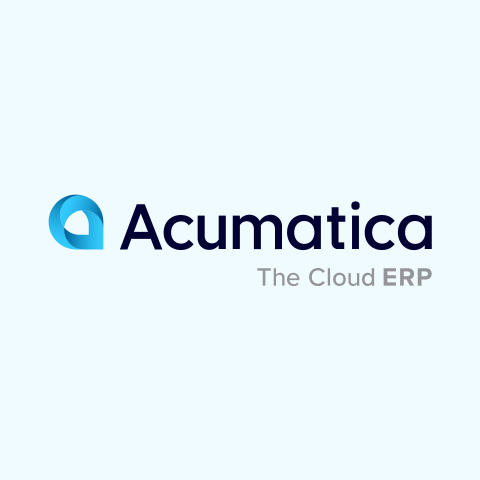
Acumatica Cloud ERP
Best for Comprehensive ERP Suite
- Industry FocusGeneral
- DeploymentCloud
- Ideal for Company SizeMid-Size Businesses
About Acumatica Cloud ERP
Acumatica Cloud ERP offers an intuitive and futuristic industry-specific business management solution. It comes with a range of products for accounting, payroll, payments, reporting and analytics, CRM, POS, inventory, order management, manufacturing, service management, and Warehouse Management System. This makes Acumatica Cloud ERP a comprehensive ERP suite.
Acumatica was founded in 2008 and has 10,000+ customers worldwide.
Benefits
Acumatica Cloud ERP functions as a single source of truth for the entire organization, so any team member can gain real-time business insights without any confusion. It offers a consistent and unified view of current accounts for businesses. It automates workflows and simplifies the synchronization across multiple workflows.
Learn more in our Acumatica ERP review.
Acumatica Cloud ERP Features
Intuitive UI for improved efficiency.
Cross-module workflows for smooth collaboration.
Easily integrate the tools and systems already in use.
A low-code / no-code environment for personalized instances.
Accurate inventory tracking, omnichannel fulfillment, and order rates.
Accounting and payroll tools for financial management.
Standard CRM to manage leads and contacts.
Multi-level Bill of Materials software (BOM)/Routing.
Production management and manufacturing estimates.
Manage sales and purchase orders through automation.
Inventory and warehouse management with an organized distribution process.
Native integration support for Amazon, BigCommerce, and Shopify.
Acumatica Cloud ERP Pros/Cons
GDPR, SOC Type 1 & 2, PCI DSS compliant.
Pay-as-you-go licensing model.
Implementation without hidden fees.
Deployment options in public or private cloud.
Pricing information not available.
Does not support on-premise deployment.
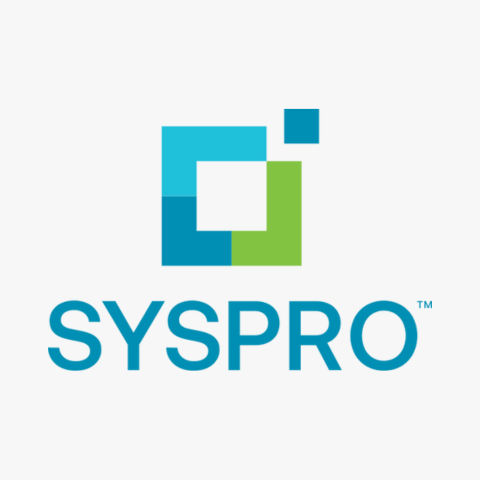
SYSPRO
Best for Manufacturing Process Optimization
- Industry FocusManufacturing
- DeploymentHybrid
- Ideal for Company SizeMid-Size Businesses
About SYSPRO
SYSPRO allows organizations to get a complete view of finance, inventory, supply chain, and business operations. It supports the automation of routine manufacturing business processes, such as processing supplier invoices.
SYSPRO offers improved control over manufactured goods and products so that businesses can significantly cut down on associated costs and downtime, making it the ideal ERP solution for manufacturing process optimization.
SYSPRO was founded in 1978 and has 15,000 licensed companies as its clients.
Benefits
SYSPRO ERP software offers relevant technologies on demand, enabling companies to digitize their business at their own pace. Its solutions use AI and ML technologies to bring rich insights, unknown trends, and business anomalies to the forefront for better decision-making.
SYSPRO comes with a large collection of easy-to-use tools that allow companies to collaborate internally and externally, ensuring continuous workflow. It also connects data and processes across departments such as finance, accounting, inventory, order management, and shop floor.
SYSPRO Features
Accounting, budgeting, and financial reporting for financial management.
Track and manage inventory levels, orders, and supply chain processes.
Full visibility into finance, warehouse, and inventory or organization.
Manage data to get insights into business operations.
Generate shipment item list and print out outer labels.
Create a comprehensive product catalog with pricing and promotion.
Software personalization support without any coding skill.
Control product design changes by managing traceability.
Handle cost fluctuation and regional differences to boost operational efficiency.
SYSPRO Pros/Cons
Industry-specific functionalities for manufacturers.
Scalable software to meet the growing needs.
Deployment options for cloud, on-premise, and hybrid.
Single Sign-On using Google, LinkedIn, or Microsoft accounts.
Lack of transparent pricing.
No free trial available.
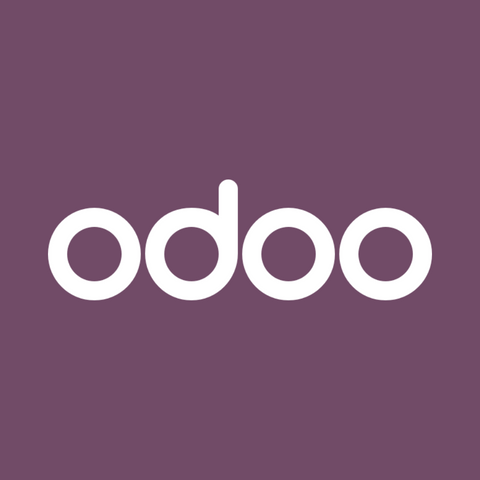
Odoo
Best for Flexible and Affordable ERP
- Industry FocusGeneral
- DeploymentCloud
- Ideal for Company SizeSmall to Mid-Size Businesses
About Odoo
Odoo brings a large collection of business apps in one platform. Companies can choose between its free community version or paid enterprise version. Its all-inclusive per-user pricing system allows companies to pay according to their workforce size. Businesses do not have to commit to a fixed monthly or yearly payment. For this reason, Oddo is the best ERP software, and it is flexible and affordable.
Odoo was founded in 2002 and has 12 million users worldwide.
Benefits
Odoo enables automation in lead creation, activity scheduling, and team assignment. This allows users to focus on more pressing tasks. It allows pipeline management and sending quotes in a few clicks, reducing manual data entry.
Odoo’s AI-powered lead scoring system enables companies to work on the right priorities. It also manages all aspects of leads, like creation, import, nurture, etc., in a single place.
Odoo Features
Integration support for email marketing, sales, and inventory.
Odoo Studio to automate action and customize screens, reports, or webhooks.
Website builder to create ecommerce website, blog, forum, live chat app, and LMS.
Customer-centric CRM for tracking leads and getting forecast.
Recurring billing and subscriber management.
POS software for online and offline payments.
Document management system for digitization and automation.
Create invoices and submit expenses from the phone.
Lean manufacturing app for order scheduling, QA, and shop floor maintenance.
Job posting and referral management.
Manage employee information, time-off approval, employee evaluation.
Automate marketing through email, SMS, and social media.
Manage projects, appointments and scheduling, team collaboration.
Odoo Pros/Cons
Flat per-user pricing for all apps.
Unlimited customer support for all users.
15-day free trial available for paid plans.
Hosting and maintenance included in the plans.
Only one app is allowed to be used for free.
Mobile app not available to community version users.

ERPNext
Best for Small Businesses
- Industry FocusGeneral
- DeploymentCloud
- Ideal for Company SizeSmall Businesses
About ERPNext
ERPNext is an open-source and agile solution for managing business tasks from one place. It offers 15+ efficient modules covering accounting, manufacturing CRM, and eCommerce. Small businesses with around 50 employees can use ERPNext for $50/month, making it a highly affordable ERP for small businesses.
ERPNext was founded in 2008 and has more than 5000 clients.
Benefits
ERPNext comes with built-in integration with business tools like PayPal, Dropbox, Slack, Google, Stripe, Shopify, and AWS so that companies can continue with their smooth workflow. Its modules are useful for various domains, such as manufacturing, retail, distribution, logistics, services, healthcare, education, financial services, and non-profits.
ERPNext offers customization of business objects from the software interface without any code deployment. It even provides a website builder that companies can use to create an online portal for eCommerce, blogging, and forms.
ERPNext Features
Full-fledged accounting module with real-time view of cash flow.
Summarize and analyze financial reports.
Crisp ledger maintenance for tracking income and expenses.
Multi-currency accounting with conversion facility into the base currency.
Auto-invoice generation through Subscriptions.
Customer-centric CRM for automatic lead distribution among the members.
Monitor and analyze the performance of the sales team.
Complete visibility into the sales pipeline.
All-in-one workspace to organize, schedule, and analyze projects.
To-do list and real-time chat among the employees.
File storage and sharing facility for documents, images, and videos.
SaaS help desk for omnichannel interactions.
ERPNext Pros/Cons
14-day free trial.
Flat pricing for the complete team.
Managed hosting.
Not ideal for large enterprises.
Installation and interface might be difficult for some users.

Workday
Best for HCM and Financial Management
- Industry FocusHR/Finance
- DeploymentCloud
- Ideal for Company SizeLarge Businesses
About Workday
Workday offers best-in-class enterprise management applications. Its financial management software helps companies manage financial processes intelligently through automation, analysis, and forecasting. Workday HCM software handles all workforce management tasks, including payroll, compensation, benefits, scheduling, and time tracking.
For this reason, Workday is the perfect choice for businesses looking for ERP software that focuses on HCM and financial management.
Established in 2005, Workday has Pfizer, General Electric, Hitachi, Siemens, and the National Geographic Society among its 10,000+ global customers.
Benefits
Workday’s adaptable architecture helps companies change with the business requirements.
It provides a single source for financial, HR, and operational data so that any team member can access the insights in real-time without any misunderstanding.
Workday constantly delivers technology that keeps critical business data safe. Its ethical AI ensures that organizations can empower their workforce for maximum performance and prepare them for futuristic jobs.
Workday Features
Machine Learning technology for continuous anomaly detection and suggestions.
Automatic business event data conversion into accounting.
Always-on auditing for control and compliance.
Operational, financial, and workforce planning.
Close and consolidation with accuracy.
Strategic sourcing with supplier and supplier contract management.
175+ prebuilt and customizable dashboards.
Find and hire global and local talents without any bias.
Upskill employees with personalized learning schemes.
Employee listening and people analysis.
Analytics and reporting toolkit with 5,000+ configurable reports.
Workday Pros/Cons
Real-time employee performance insights.
Scheduling, attendance, and absence management.
Industry-standard API framework.
Pricing information not available.
No free trial for HCM and financial software.
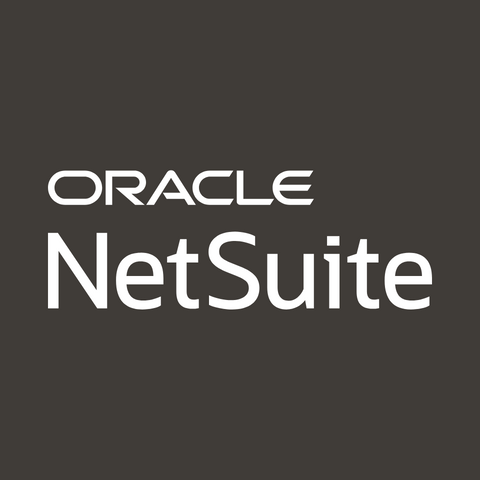
Oracle NetSuite ERP
Best for Cloud-Based ERP
- Industry FocusGeneral
- DeploymentCloud
- Ideal for Company SizeMid-Size to Large Businesses
About Oracle NetSuite ERP
Oracle NetSuite ERP is a cloud-based unified platform for managing and simplifying complex business processes in finance, inventory, supply chain, and procurement. Businesses benefit from its centralized data, which they can access in real-time across their operations.
Oracle NetSuite ERP is the perfect cloud-based ERP, helping businesses optimize workflows and make data-driven decisions.
Founded in 1998, Oracle NetSuite is headquartered in the US and has 37,000+ customers.
Benefits
Oracle NetSuite ERP automates various financial operations, making the whole process more efficient. It also gives companies complete inventory visibility, helping them with cost optimization and timely delivery.
Oracle NetSuite ERP enables companies to track inventory in multiple locations so that they can easily determine reorder points and optimize safety stock. It generates accurate inventory reports and financial statements so that businesses and stakeholders remain on the same page.
Oracle NetSuite ERP Features
Multiple global subsidiaries and legal entities’ management from one platform.
Operational and financial performance visibility into all business units.
Collect real-time updates on inventory, production data, orders.
Keep a record of financial reports for predictive analysis.
Central procure management with visibility into spending and vendor performance.
Streamline cash flow, tax management, and financial management.
Performance management with planning, budgeting, forecasting, AR, financial close, and reporting.
Error-free order processing for timely invoicing and payments.
Warehouse operations with wave management, cycle count planning, and shipping system integrations.
Oracle NetSuite ERP Pros/Cons
Supports 190 currencies and 27+ languages.
Custom dashboard for real-time business data analysis.
Scalability for different business models and configurations.
Software demo available upon request.
Not ideal for startup or small business.
Pricing information not available.
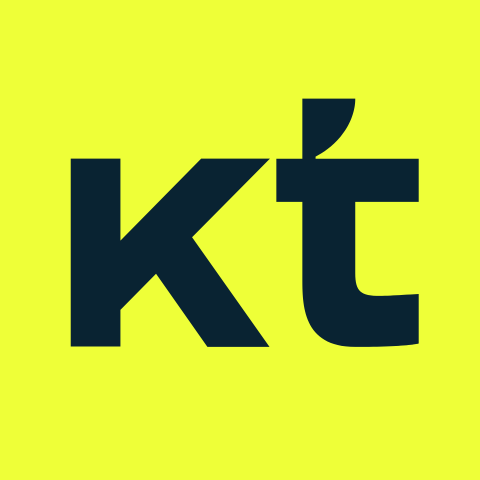
Katana
Best for ecommerce and Inventory Management
- Industry Focusecommerce
- DeploymentCloud
- Ideal for Company SizeSmall Businesses
About Katana
Katana is a manufacturing resource planning platform that emphasizes inventory management for ecommerce and traditional businesses. Its features like real-time stock tracking, sales trend recognition, and tracking time spent on shop floor activities make it the right choice for inventory management.
Katana started functioning in early 2018 and has 1,400+ businesses as its clients.
Benefits
Katana supports integration with popular automation, accounting, CRM, ecommerce, forecasting, shipping and reporting tools. This allows for automatic data flows between these applications and Katana so that the latter can become the central point of truth for the business.
Katana generates reports on material usage and outsourced purchase orders, which is helpful when companies work with contractors.
Katana Features
Inventory control for raw materials and final products.
Monitor live inventory data across multiple warehouses.
Barcode support for stock count.
Restock notifications for all-time optimal stock level.
End-to-end traceability with batch tracking.
Automatic generation of batch and internal barcodes.
Unified dashboard to manage B2B and e-commerce sales orders from multiple channels.
Track product availability for sales order fulfillment.
Organize warehouse with optimized workflows.
Real-time master planning with task-level control and live data.
Katana Pros/Cons
Live chat support.
Enriched knowledge base.
Open API that supports custom workflows.
Mandatory onboarding support. charge for Standard, Professional, and Professional Plus users.
Does not include HR and employee management features.
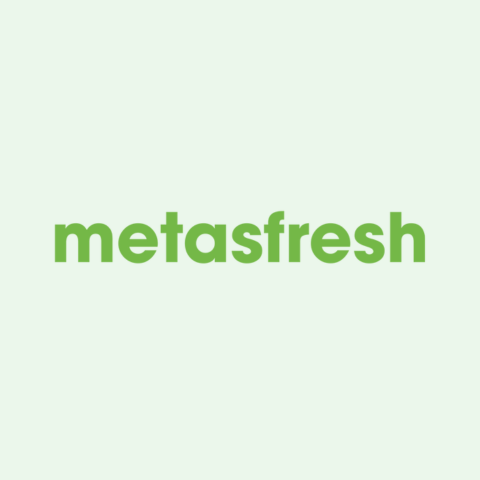
metasfresh
Best for Open Source
- Industry FocusGeneral
- DeploymentCloud
- Ideal for Company SizeSmall Businesses
About metasfresh
metasfresh helps businesses transform digitally with its enterprise resource planning software. Its community version is free forever when self-hosted. Businesses looking for a reliable open-source ERP application will find metasfresh to be highly beneficial.
metasfresh ERP started its journey in 2004 and received validation as the certified ERP system from the Fraunhofer Institute for Material Flow and Logistics (IML) in 2022.
Benefits
metasfresh ERP is an agile business solution that is ready to be used out of the box. It releases weekly updates so that companies can benefit from the latest developments.
metasfresh ERP supports code-free configuration that enables users to perform autonomous window configuration without any programming skill. It keeps client data separately and makes them accessible to the respective clients only. As a result, organizations can add unlimited clients who can function without any hassle.
metasfresh Features
Customizable ERP software for enterprises.
High-performance tool to process mass data.
Hands-on training and online webinars for users.
Dashboard to track targets and KPIs.
Data is updated on software as soon as the operational data change.
One-click access to advanced fields.
Smart fields for quick data entry with minimum typing.
Clear interface to allow users to get started quickly.
Highlighted document status action.
metasfresh Pros/Cons
Free forever self-hosted open-source software.
7-day free trial for cloud-hosted ERP software.
Support free migration to another ERP solution.
Browser-based web interface for secure access from anywhere.
Self-hosted ERP users only get support via email.
No freemium version available.
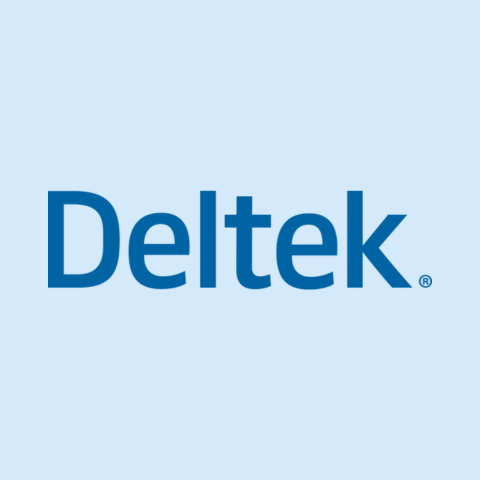
Deltek Costpoint
Best for Small Government Contractors
- Industry FocusGovernment
- DeploymentCloud
- Ideal for Company SizeSmall to Mid-Size Businesses
About Deltek Costpoint
Deltek Costpoint offers industry-leading cloud ERP. Small businesses dealing with government contracts choose to automate the entire project lifecycle. Being a purpose-built ERP software, Deltek Costpoint proactively manages the process from contracts to closeout while staying compliant.
Deltek was established in 1983 and served more than 30,000 customers with industry-specific solutions.
Benefits
Deltek Costpoint helps startups and growing businesses manage contracts while being compliant with Federal Acquisition Regulations (FAR). It also optimizes cash flow and resources by leveraging project and cost visibility.
Costpoint ERP software allows companies to unlock advanced functionalities when they need to expand contracts. It also offers the general ledger functionality that is essential for small businesses.
Deltek Features
Back-office operation automation with financial management features.
AI-powered analysis of data to identify trends.
Customize interface with role-based user profiles.
Cost pool and financial intelligence to control the projects.
Precise and speedy cash flow management.
Automated invoicing and payment processing.
Out-of-the-box user profiles and dedicated training.
Quick start deployment to reduce implementation time and cost.
Real-time data view for accurate project analysis.
Deltek Pros/Cons
Pre-configured dashboards and reports.
Speedy onboarding for the organizations.
Built-in compliance with regulations like CMMC, DCAA, and FAR.
Additional solutions like Contracts Management and Procurement.
No free trial available.
Pricing information unavailable.
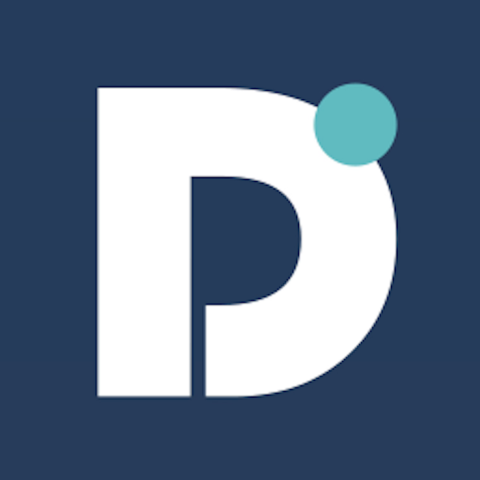
Dolibarr
Best for Customization
- Industry FocusGeneral
- DeploymentOn Premise
- Ideal for Company SizeSmall Businesses, Freelancers
About Dolibarr
Dolibarr offers ERP and CRM solutions for SMEs, enterprises, and freelancers. It lets users apply customization in the applications through low-code module builder assistance. If the customization offered by the assistant is not enough for the companies, they can opt for custom app development.
Dolibarr started its journey in 2002.
Benefits
Dolibarr is a free and open-source ERP that incorporates user feedback into the updates. The user community constantly contributes to making the software user-friendly. It allows users to enable only the necessary features or applications.
Dolibarr Features
Low-code Module Builder assistant for customization.
In-the-box integration between the features/modules.
Import Export Wizard to exchange data in CSV and Excel file.
Prospect contact management.
Create, process, and track sales orders.
Create and send professional proposals to prospects.
User groups for employee permission management.
Employee expense approval.
Job posting and application tracing.
Timesheets and leave request management.
Bulk email and surveys for marketing campaigns.
Procurement management and warehouse restocking.
Bills of Materials and materials resources planning.
Time-tracking and follow-up of projects and tasks.
Create, send, and track invoices.
Automatic ledger generation and reconciliation.
Dolibarr Pros/Cons
Free software for all businesses.
Available on all platforms (cloud and on-premise).
Install on any device, including virtual machines.
REST API for data extraction.
Does not offer any mobile app.
Limited features and customization.
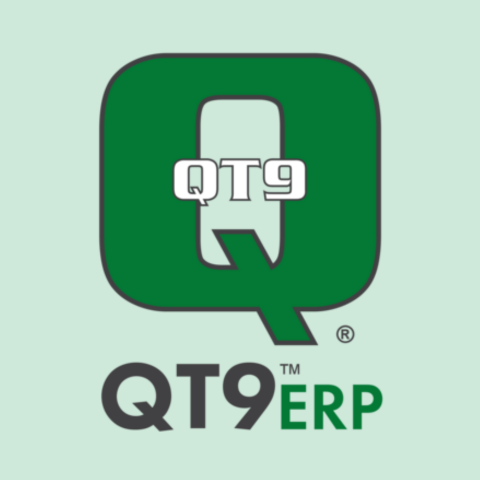
QT9
Best for Quality Management
- Industry FocusQuality Management
- DeploymentCloud
- Ideal for Company SizeSmall Businesses
About Qt9
QT9 is validated ERP software for life science. When it comes to quality management for biotechnology and pharmaceutical companies, QT9 ERP offers the best features by seamlessly integrating with QT9 QMS. For medical device manufacturers or any other related organization, QT9 is the best choice.
QT9 was established in 2005 and has 1000+ global brands as its clients.
Benefits
QT9 directly links data between its pre-installed modules, automating the process for efficient working. The true multi-site capability of QT9 ERP creates a real-time connected environment for centralized operations.QT9 ERP is ideal for businesses looking for a scalable platform. It lets companies switch from one module to another as their needs change or increase.
Qt9 Features
Automatic workflow to eliminate manual workarounds.
Data export to Excel or other analytics tools for analysis.
Electronic signatures with FDA 21 CFR Part 11 Compliance.
Dashboard with drag-and-drop feature and multiple views.
Credit card processing and financial reporting.
Inventory drill down with tracking lot and serial.
Purchase order approval, inspection, and revision.
Portals for customer and supplier.
Track task status to identify overlaps and gaps.
Global administrative tools to add custom fields.
Simplified collaboration using shared data.
SSL encryption for secure data transmission and storage.
Complete disaster recovery and business continuity support.
Access restriction and segregation for sensitive work.
Qt9 Pros/Cons
Configurable software with personalized dashboard grids.
Real-time reports on a 360-degree view.
Free trial available for testing software features.
Cloud and on-premise deployment options.
Pricing information unavailable.
Limited reporting functioanlity.

Epicor
Best for Large Businesses
- Industry FocusManufacturing
- DeploymentHybrid
- Ideal for Company SizeLarge Businesses
About Epicor
Epicor transforms the digital transformation in large companies. It offers dedicated ERP solutions for various industries. For instance, it offers BisTrack for building suppliers, Kinetic for manufacturers, Prophet 21 for distributors, LumberTrack for wood product manufacturers, and Eclipse for HVAC, electrical, and PVF distributors. Its tailored offerings for HVAC solutions help businesses streamline operations, track inventory, and manage complex workflows seamlessly.
Enterprises can choose from these industry-specific solutions to avail themselves of the specific features needed for the organizational workflow. This makes Epicor the best ERP software for large businesses.
Epicor was founded in 1972 and has over 2.3 million daily users in 150 countries.
Benefits
Epicor ERP combines and transforms data from all applications to improve operational performance. Though it is a cloud-focused solution, organizations can deploy it on-premise or in a hybrid environment.
Epicor offers a cloud-based business platform, allowing remote and hybrid users with a browser-based experience. Its innovative analytics feature can predict business disruptions, so companies can manage those utilizing Epicor’s people-centric AI.
Epicor Features
Global cloud ERP for discrete, make-to-order manufacturing.
Built-in collaboration tools for internal communication.
Tools for forecasting, MRP, scheduling, and sourcing to manage supply and demand.
AI-infused insights and digital twin analysis for scalability and growth.
Real-time visibility into demand and production.
Detailed invoice creation with up-to-date information.
Dashboard and reporting tool to track what is happening across the organization.
Financial capability for cost control, budgeting, and accounting.
Governance, risk, and compliance solutions to meet international standards.
CRM with mobile capabilities for complete customer relationship.
Global business management supporting multiple companies, languages, and currencies.
Project management with estimation, planning, scheduling, costing, and supply chain features.
Epicor Pros/Cons
Single Sign-On With Epicor Identity.
Email and RSS feed subscriptions for cloud status alert.
24/7 Epicor support portal.
Account manager for dedicated assistance.
Lack of transparent pricing.
Support is not handy with complex issues.
Comparing Top Picks of ERP System
The table below provides a summary of pricing and ratings for the best enterprise resource planning (ERP) software.
Best ERP Software | Rating Geekflare’s editorial team determines ratings based on factors such as key features, ease of use, pricing, and customer support to help you choose the right business software. | Price (monthly) | Learn More |
|---|---|---|---|
 Sage X3 | On request | ||
 Microsoft Dynamics 365 | $70 | ||
 SAP Business One | On request | ||
 Acumatica Cloud ERP | On request | ||
 SYSPRO | On request | ||
 Odoo | $24.90 | ||
 ERPNext | $50 | ||
 Workday | On request | ||
 Oracle NetSuite ERP | On request | ||
 Katana | $179 | ||
 metasfresh | On request | ||
 Deltek Costpoint | On request | ||
 Dolibarr | FREE | ||
 QT9 | On request | ||
 Epicor | On request |
What is ERP Software?
ERP software or enterprise resource planning software is a centralized system that streamlines the business processes through integration across various departments of an organization. It has an extensive suite of applications that can manage accounting, HR, supply chain management, CRM, and other essential tasks.
Enterprise resource planning software unifies all workflows into one platform. Thus, it enables efficient communication and collaboration among the teams and enhances productivity within the enterprise. Companies make better decisions through real-time insights provided by the ERP solutions. It results in increased operational efficiency and allows organizations to adapt to evolve market demands.
Why Do Businesses Need ERP Software?
Businesses need ERP software to streamline operations, ditching the data silos. It works as a central hub that integrates data from finance, inventory, procurement, HR, project management, and CRM. With its help, companies can reduce human errors and discrepancies as everyone can fetch the data from the same source. ERP software is essential for organizations willing to improve team efficiency and get real-time insights for better decision-making.
Below are the 6 reasons why businesses need ERP software.
- Streamline Operations: ERP serves as a single system for the efficient flow of data and tasks between isolated departments working with separate data. With it, the sales team can check real-time inventory levels before ensuring a delivery date to the clients. This process helps organizations eliminate redundant efforts and delays.
- Centralized Data: ERP software stores all business data in a single database, making it the single source of truth for all departments. Be it inventory, finance, or HR, everyone can access and use the same information, eliminating the chance of errors and confusion.
- Improved Visibility: With enterprise resource planning software, employees get a real-time update of what is happening across the business, including inventory levels, sales pipelines, production schedules, and financial performance.
- Enhanced Productivity: ERP software solutions automate tasks like order processing, invoicing, and inventory replenishment. This frees up employees from spending on repetitive tasks and lets them focus more on strategic work.
- Better Financial Management: Enterprise resource planning software also tracks the business’s income and expenses to better understand its financial health. Thus, organizations can make better budgeting and forecasting decisions.
- Inventory Management: ERP enables real-time inventory level tracking to avoid stockouts and overstocking. It allows companies to identify slow-moving items to optimize their inventory level.
How Does an ERP System Work?
An ERP (Enterprise Resource Planning) system works by integrating several core business processes into a single platform. Through the integration, data seamlessly flows across the organization, allowing companies to manage their resources efficiently.
ERP typically has modules covering areas such as finance, manufacturing, HR, supply chains, and customer relationship management. These interconnected modules share a common database that works as a central respiratory for all departments. ERP system also eliminates data silos by automating routine tasks to improve efficiency.
Is ERP Software Better than ERM Software?
ERP software streamlines internal operations, while ERM helps companies with communication management. Since these applications serve different purposes, calling ERP software better than ERM software would be wrong.
ERP integrates the core internal functions of a business. ERM focuses on managing relationships with various external entities such as customers, partners, and other stakeholders. Companies use ERP for internal operations, while ERM is used for external communication management.
What are the Criteria to Consider When Choosing ERP Software?
To select the right ERP software, consider the below outlined aspects.
- Business Needs: The selection process should start with identifying the core business processes, business needs, and desired outcomes. It is important to choose an ERP that has features to meet the specific needs.
- Scalability: Businesses should keep their growth plan in mind when choosing enterprise resource planning software. It is wise to choose an ERP solution that can scale up or down according to business growth.
- Ease of Use: A successful ERP implementation depends on user adoption. Check if the UI is intuitive, easily navigable, and user-friendly for employees with different technical skills.
- Customization: Enterprise resource planning software should be customizable to meet workflows and reporting needs. Depending on employees’ expertise, businesses can choose from ERP software that can be customized through configuration or requires complex coding.
- Integration Capabilities: The power of ERP software lies in its integration capability. Consider its integration support and compatibility to ensure seamless data exchange between systems.
- Data Security and Compliance: Evaluate the security protocols, data encryption models, and disaster recovery plans of an ERP software program to secure sensitive business data. The chosen software must comply with data privacy regulations related to the industry and location of the particular business.
- Cost and Budget: ERP software is available in varying price ranges, depending on features, user count, and deployment mode. With these, companies should also consider additional charges for implementation, maintenance, and employee training. Finally, see if the cost aligns with the allocated budget for this purpose.
Is ERP Software Expensive?
No, ERP software is not expensive if companies go for the free and open-source options. However, opting for paid ERP software can turn out to be expensive, especially if large enterprises go for per-user plans.
The ERP software price of the paid applications depends on factors like company size, deployment method, features and services, user count, and customization. Hence, whether ERP software is expensive or not depends on the application a business chooses for itself.
Is ERP Software Worth It?
Yes, ERP software is worth the value it brings to the business. It is a game-changer for companies looking for growth and efficiency. ERP software offers an integrated view of business data that streamlines tasks through automation and improved accuracy.
ERP software comes with upfront costs, but the potential benefits of reduced errors, breaking information silos, and improved collaboration result in significant cost savings. If a business wants to achieve its full potential with smart operation, ERP is an investment worth considering.
What are the Other Enterprise Software?
Enterprise software or business software are applications essential for smooth business operations, regardless of the industry. Other best enterprise software includes Intuit QuickBooks for accounting, monday.com for project management, ADP for payroll processing, Salesforce 360 for CRM, Rippling, SignNow for electronic signature, Slack for communication, and Stripe for payment processing.

